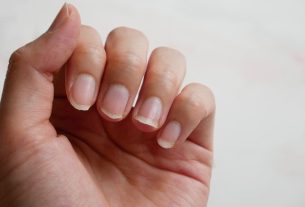Everyone has woken up with their face bloated or experienced the sensation at some time in their life. Check out the main causes of this:
Smalled face or facial edema, as it is technically known, can happen for several reasons. Usually this is an easily treated problem, as the swelling is usually something common to your day to day. However, it is important to note that there are causes that need medical help and special care.
The swollen face, for example, may be a result of increased pressure during sleep in the region. However, it can also indicate some type of serious problem, which deserves the attention of a specialist doctor. Especially if the swelling appears suddenly or else without an apparent reason, even hours after you wake up.
In addition, it is worth mentioning that it can arise due to a dental problem, or after surgery. You can also wake up with a swollen face after drinking alcohol or having gone to a caster’s steakhouse the night before, for example.
Therefore, below you check a little more in detail about the reasons that may be causing your bloated face and when you should worry.
Main causes of the swollen face
As stated earlier, there are several possibilities of causes for the swollen face, below we will know the most common and what to do in each case:
1. Excessive consumption of sodium
The first and one of the most common is the excessive consumption of foods with a lot of sodium. Eating large amounts of this salt and sodium ends up causing swelling not only of the face, but also of other parts of the body such as hands and legs.
How to treat it
The first step is to reduce the consumption of this type of food, as well as avoid putting too much salt in your recipes. But, if the swelling in the face comes accompanied by other symptoms such as bloody or very tiredness, the recommendation is to see a doctor to evaluate the case.
2. Infectious diseases
Another common cause is the presence of infectious diseases such as sinusitis or even insect bites. Both situations can lead to swelling in the face, usually accompanied by other signs, such as fever and difficulties to see.
How to treat it
The first step is to make a medical appointment to determine the cause and then start treatment according to the disease, which usually includes the use of antibiotics.
3. Sleeping little or in excess
Do not sleep long enough, not having the rest adapting, as well as sleeping more than indicated can result in swelling in the face. This happens due to pressure from the face on the pillow during sleep. However, in this case, the swelling is not so marked and improves quickly throughout the day.
How to treat it
This type of swelling has usually not accompanied by more symptoms and tends to disappear in a few hours, being quite common and normal. However, if you don’t get better hours after waking up and if you have other symptoms such as shortness of breath or swelling in other regions, it is recommended to go to the hospital.
4. Side effect of remedies
This type of symptom can happen due to the use of certain types of drugs, such as antihypertensive drugs, corticosteroids, contraceptives and even anti-inflammatory drugs. In this case, swelling may also appear in other regions, such as legs and hands.
How to treat it
If this is the cause of the swelling in the face, the doctor who has been prescribed treatment should be consulted to make an evaluation and if it is necessary to change or suspend the medicine. Thus, the symptom tends to disappear after the exchange or discontinuation of the use of the remedy.
5. Surgery on the head, mouth, face, neck
In this case it is super normal and even expected that there will be a swelling in the face. Dental surgeries, the head or neck tend to cause swelling in the region involved. In addition, it can be accompanied with pain and difficulty to move the part that went through the procedure.
How to treat it
This type of normal swelling usually goes away naturally after a few days of the procedure. But if this does not happen, and has other symptoms, such as fever and pain, can be indicative of some infection and should be treated according to medical recommendation.
6. Pregnancy
In the case of pregnancy, swelling in the face is not very common, and can be indicative of preeclampsia. If that is the case, the swelling is accompanied by other symptoms, such as high blood pressure, urine reduction and even difficulty breathing.
How to treat it
Because it is not something common, the ideal is to look for your obstetrician as soon as possible, so that you can treat and prevent the picture from evolving to something more serious.
7. The hypothyroidism
In the case of hypothyroidism, the swelling in the face is called myxema, and is usually linked to the non-treatment of the disease. In this case, the swelling also affects the eyelids and back of the hands, as well as may have other symptoms of the disease, such as fatigue, weight gain and constipation.
How to treat it
The first step is to seek out an endocrinologist to evaluate the picture and confirm if there are other symptoms of hypothyroidism. If the diagnosis is confirmed, with the treatment of the disease, swelling in the face tends to decrease.
8. Allergy
Allergic reactions to food, medications, cosmetics, insect bites and etc., can also result in swelling in the face. If this is the cause, the allergic reaction may be accompanied by itching and redness in the affected region.
How to treat it
If you suspect that the cause is an allergic reaction, look for the emergency care from the nearest hospital as soon as possible. Thus, the doctor will evaluate your condition and indicate the treatment more adaptive.
9. A punch in the head
Suffering some injury or blow to the head can also be one of the causes of swelling in the face. In this case, the swelling comes with pain and even disorientation due to trauma. However, it tends to pass soon after. But if after the stroke, the person has mental confusion, excessive sleep and seizures, it can be something more serious than it seems.
How to treat it
At first, using ice over the region helps relieve pain and decrease swelling. But in the case of other more severe symptoms after the stroke, the recommendation is to go to the hospital for an appropriate evaluation.
10. Headache
Certain types of headache, such as headache in saving, can cause swelling in the area of the face, besides the pain that comes with the seizures.
How to treat it
Usually swelling and other symptoms usually relieve naturally as pain goes on. But if not to pass the ideal is to make an appointment with a specialist doctor, a neurologist to evaluate in detail the patient’s case and condition.
11. Cancer treatment
Treatments such as chemotherapy or immunotherapy can also result in swelling in the face. This is due to the effect of treatment on the tumor, being more common at the beginning of treatment.
How to treat it
So, if the swelling is followed by symptoms such as drowsiness or urine reduction, it is essential to consult the doctor responsible for treatment for a more detailed evaluation of the case.
12. 12. Severe malnutrition
Finally, another cause of swelling in the face is related to a protein-deficient diet, and it usually occurs in children. If this is the case, the swelling usually begins in the legs, having a connection with muscle atrophy, as well as an increase in the belly, yellowish color, hair loss and growth problems.
How to treat it
The recommendation is a balanced diet, rich in protein and that meets all the nutritional needs of the patient. But if the symptoms mentioned above are already present, it is essential to see a pediatrician as soon as possible. And when malnutrition improves, the swelling disappears.
What do you do to de-sint the face?
Next, we’ve put together some simple but very effective tips to help desint your face:
1. Drinking water and exercising
Our first tip to desinch the face is to drink 2 glasses of water and then take a quick walk or run for about 20 minutes. The ideal is to do this before breakfast. In fact, this combo of attitudes promotes increased blood circulation and the formation of a greater amount of urine. It will naturally eliminate excess fluid from your body.
Soon after, you can have your breakfast. Remember to avoid processed foods, which are bad for the body. Therefore, we indicate that you invest more in foods like natural yogurt or a diuretic fruit juice. In fact, pineapple with mint is an excellent option for breakfast.
2. 2. Apply cold water and ice
Basically, cold can promote a decrease in the diameter of small blood vessels. This can help to decrease edema simply and quickly. Therefore, it is recommended that you wash your face with cold water. This can be an easier and more effective strategy.
Moreover, you can also wrap an ice stone in a napkin, or in a bag; and pass around the eyes with circular movements. Therefore, this is also a good way for you to eliminate excess liquid from the region.
3. Take a Diuretic Medicine
Our goal is to help you desin your face without having to use medicine. However, if the other tips do not work, perhaps diuretic is what you need. This is because this type of medicine encourages your kidneys to filter out the blood more. That is, they help the body to eliminate more water and sodium through urine.
In addition, they can help in the control of blood pressure. However, do not self-medicate! Diuretics can be harmful to health if taken indiscriminately.
4. 4. Make facial lymphatic drainage
Basically, a massage that you can do yourself in your home already helps. This, by the way, is a great ally and an excellent natural solution to deflate the face. However, the ideal is to see a specialist in lymphatic drainage to do the treatment and teach you the correct way to do the massage.
5. . 5. Sleep with a pillow higher
It may seem like a silly and ineffective hint, but don’t be fooled. Building the habit of sleeping with a slightly higher pillow makes a lot of difference. This is because it helps to avoid the accumulation of lymph fluids in the face region, consequently avoiding swelling.
6. . 6. Comcupo of Chamomile Tea
Finally, a very simple tip, the compress of chamomile tea. As chamomile has a soothing effect, the compress with the drink helps and greatly reduces swelling in the region. For this, the tip is to get a cotton with the drink and put on the parts swollen and leave for about 10 minutes and this will help a lot.
When to find help?
Generally speaking, morning swelling tends to disappear after a few hours. However, if the swelling continues after a few hours of waking up, it may be a warning sign and one should investigate what may be causing it.
For example, in cases where the swelling increases greatly in a matter of minutes or hours, and has been following itching, and other symptoms, the recommendation is to seek a hospital as soon as possible. This is because this can characterize a serious case that needs to be monitored and treated by a doctor.
In addition, other cases that swelling has accompanied by inflammation or other infection, causing redness in the region, as well as pain, also requires medical help.
Read more:
Radiofrequency on the face, who can do and what is it for?
7 Tips for Closting Open Face and How to Avoid
10 Benefits of Apple Vinegar on Your Face? How to do at home and care
What is the shape of your face? Can you identify it?
What types of spots on the face and how to take them?
Fury on the face – Prevention and treatments for removal
Bibliography:
Sources: Your health Tips for Women Network Pain

Sign up for our newsletter and stay up to date with exclusive news
that can transform your routine!
Warning: Undefined array key "title" in /home/storelat/public_html/wp-content/plugins/link-whisper-premium/templates/frontend/related-posts.php on line 12
Warning: Undefined array key "title_tag" in /home/storelat/public_html/wp-content/plugins/link-whisper-premium/templates/frontend/related-posts.php on line 13




